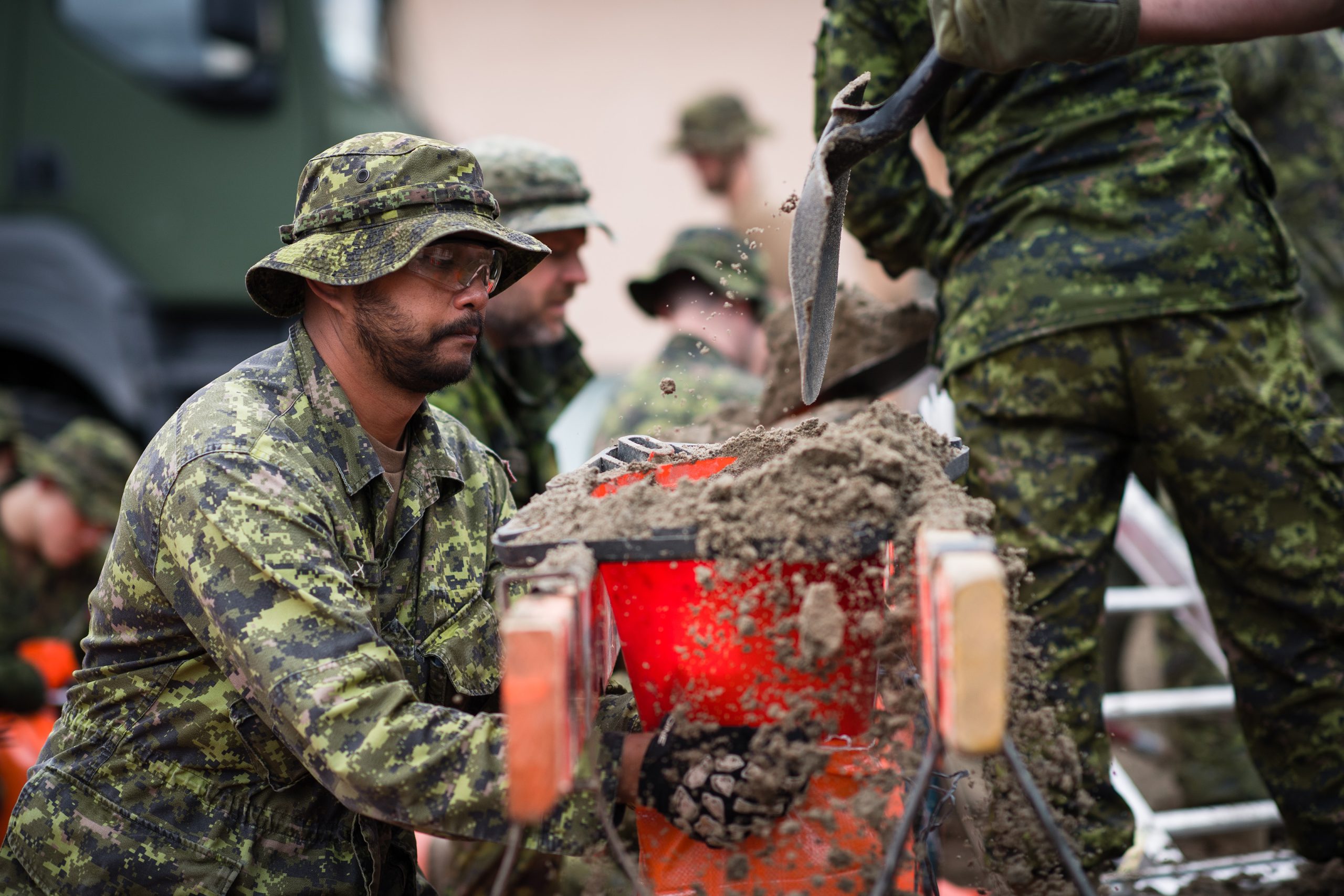Incentivizing compulsory military service would create a national reserve prepared to serve in times of crisis

Photo by Corporal Brandon James Liddy.
A Pentagon study released in 2022 states that 77 per cent of young Americans are considered unfit for military service. Whether this is due to poor physical or mental health, the vast majority of youth in the United States are unsuitable for the gruelling lifestyle of military service. This statistic speaks to the general poor health of the average young American. The world is becoming an increasingly unstable place, both politically and environmentally. If the healthiest demographic of the population is this unhealthy, the entire society is at risk.
To avoid this problem in Canada, our country should implement compulsory military service. Compulsory military service in Canada would provide young Canadians with an enlarged skill set while also providing a permanent emergency response force ready to tackle unpredictable domestic and international developments.
Compulsory military service, also known as conscription, is a military practice where significant portions of the domestic population are mustered to bolster the army’s reserve. Compulsory military service tends to consist of a set percentage of people within a specific age range who are required to serve in the army.
Generally speaking, new recruits undergo extensive training while in the army. They learn fundamental military doctrine, consisting of military strategy, how to work effectively in a hierarchy and how to react flexibly to solve problems. They also engage in basic weapons training, undergo rigorous endurance and strength training, and acquire a comprehensive suite of practical skills such as construction techniques, emergency response, and vehicle operation. These skills are needed to succeed in the military and will enable recruits to work together to overcome a wide variety of crisis situations.
In Canada, full conscription is impractical. However, a partial compulsory military service system akin to those in Scandinavia is a reasonable solution to the increasing severity of climate change and general lack of physical health among youth.
Norway, for example, has compulsory military service. Norwegians aged 18 must declare their health and intentions regarding military service. An average of 27% of people who submit the declaration receive a draft letter. These recruits then must undergo a term of 12-16 months in the army, from which they can either stay or leave freely. Crucially, Norway was among the first nations in the world to draft citizens of all genders equally.
Now for some math. The current number of active military personnel in the Canadian Army is around 68 000 as of 2020. According to Statistics Canada, in 2023, there were approximately 2.6 million Canadians between the ages of 20 and 24. Taking into account those unable to serve due to disabilities or health concerns, 500 000 is a roughly divided estimate of those eligible to serve in Canada. If Canada imitated Norway, 27% of 500 000 would mean 135 000 recruits. These numbers would provide an excellent emergency response force capable of serving the country by, say, helping diminish the impacts of natural disasters.
In Canada’s case, compulsory military service has several advantages. Training would enhance the skill set of each recruit who passed through the program while making them adaptable to a wide variety of crisis situations. The increased personal capacity and the empowerment that comes with it will protect all Canadians. Compulsory military service is also an equalizer, as men and women would serve alongside each other, empowering women in a historically male-dominated field.
As the climate changes, natural disasters are becoming more severe and regular. So, having a cohesive emergency response reserve ready to act in times of crisis has obvious advantages. Take the devastating damage caused by forest fires as an example. In a situation where recruits are ready to work together within a clear command structure, where they can utilize their practical skills effectively and flexibly to combat the crisis, the impact of forest fires would be lessened.
Admittedly, there are a number of potential issues with compulsory military service in Canada. The sudden influx of recruits would be a sizable expense to the armed forces. Another key concern is the infringement of the freedom of young Canadians. Conscription in the past has led to mass draft dodging, such as during the Vietnam War, which was hardly condemnable given that notorious hell.
To lessen the infringement of freedoms, Canada should incentivize compulsory military service. Tax exemptions, pensions, enhanced subsidized post-secondary education could make military service more appealing to young Canadians. As a young person, I would certainly be incentivized if I got something out of it.







